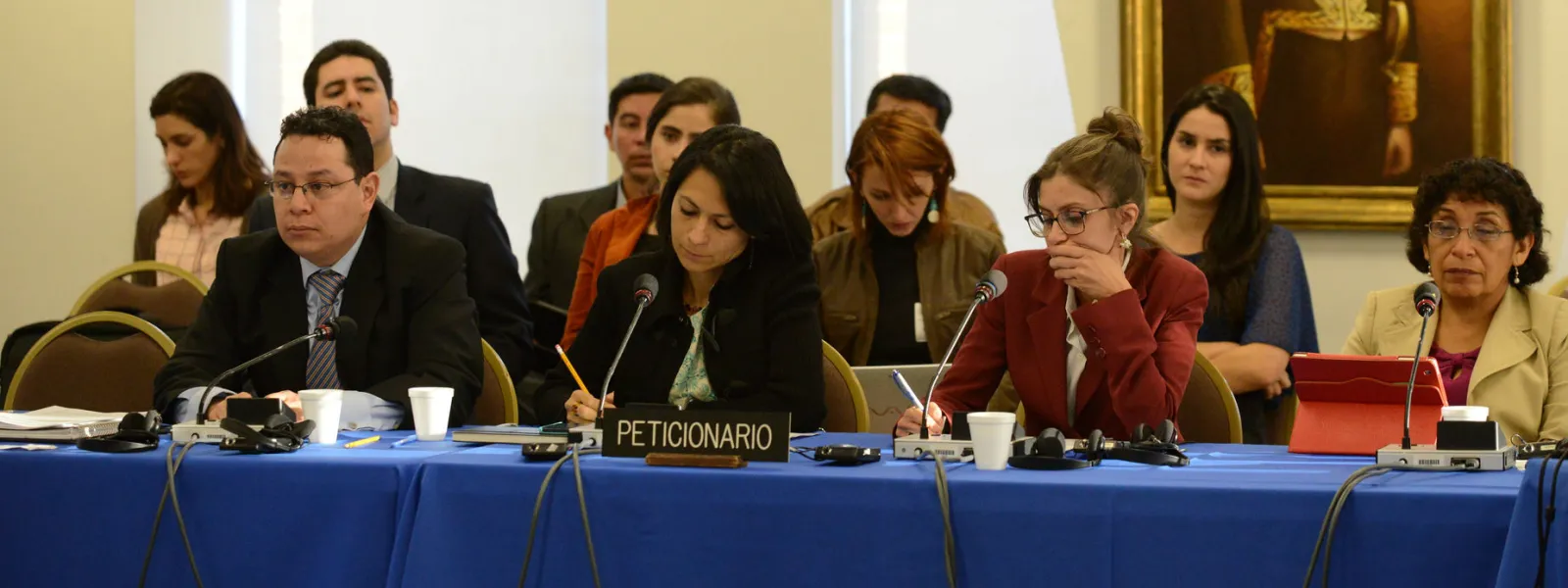
Organizations request that the IACHR strengthen State obligations to supervise corporate activities that violate human rights
In a hearing before the Inter-American Commission on Human Rights, they highlighted the opportunities that the Commission has to address the problem through the creation, implementation and strengthening of international standards on business and human rights.
Washington D.C. In a hearing before the Inter-American Commission on Human Rights, civil society organizations requested that the Commission provide renewed attention to the problem, increasingly experienced in the hemisphere, of human rights violations committed by corporations.
The hearing was jointly requested by the Interamerican Association for Environmental Defense (AIDA), a regional organization; the Association for Human Rights (APRODEH) of Peru; the Center for Human Rights and Environment (CEDHA) of Argentina; and Justiça Global of Brazil. The organizations applauded the Commission’s openness to directly addressing, for the first time, the theme of business and human rights in a public hearing.
“Through various mechanisms in recent years, the Commission has received a large amount of information about cases of human rights violations in which corporations have played a central role, but the problem has worsened because of a lack of effective solutions. In this sense, one of the biggest challenges the Commission has is to find ways to address the issue properly and to help both the States and the corporations to fulfill their human rights obligations,” explained Astrid Puentes, co-executive director of AIDA.
Through their work, the organizations have seen that most recurrent aspects of the problem include: the impacts of megaprojects and extractive industries on human rights and the environment; difficulties in guaranteeing the right to participation and access to information for affected people and communities; the absence of Human Rights Impact Assessments; systematic violations of labor rights and forced labor practices; the privatization of public security forces to protect business activities; and aggression towards and criminalization of people who defend the environment, their territory and human rights.
At the hearing, the organizations reminded that progress has been made in the development international standards on business and human rights. One such example, they explained, is the United Nations Guiding Principles on Business and Human Rights.
"However, because compliance is voluntary and there are various legal loopholes, this instrument has not been effective enough to prevent the continuation of human rights abuses. Also, effective regulation of territorial and extraterritorial State obligations regarding the responsibilities of transnational corporations on national, regional and international levels does not exist. This sort of vacuum prevents both the safeguarding of people’s rights, and access to appropriate compensation and justice for victims,” said Alexandra Montgomery of Justiça Global.
Looking forward, the organizations presented information about the opportunities the Commission has to strengthen the implementation of existing standards. They emphasized the following points:
- The Commission should promote corporations’ respect for human rights. This includes promoting State responsibility for adequate supervision of business activities and for establishment of binding obligations for them, since the voluntary nature of the Guiding Principles compromises and puts at risk the protection of human rights.
- Based on the jurisprudence of the Inter-American Human Rights System in relation to the obligations of States to respect and guarantee human rights, the Commission can develop specific measures for States to supervise business activities to ensure that they do not violate human rights.
- Respect for human rights by States and companies must not be subject to economic or political considerations.
- It is necessary to strengthen access to justice for victims of human rights abuses by business actors through recommendations for improvement and implementation of accountability mechanisms and international forums, such as the Commission and the Inter-American Court of Human Rights.
“We hope that as a result of the hearing, the Commission initiates dialogues that incorporate the experience of civil society organizations and of United Nations agencies to strengthen the respect of and guarantees for human rights in the region,” concluded Gloria Cano, of APRODEH.
